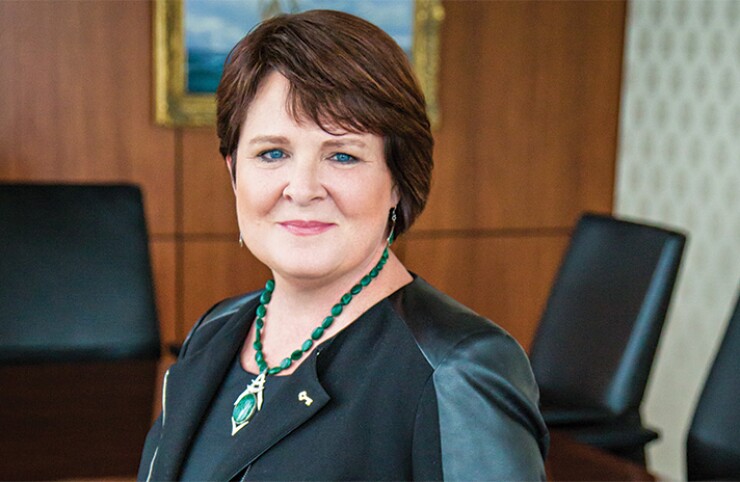Group Head, Debt Markets, KeyBanc Capital Markets
After being involved in more than 70 syndicated finance transactions involving noninvestment grade companies, KeyCorp's investment banking unit finally earned a lead-left moment in 2017.
KeyBanc Capital Markets was the main underwriter for a $300 million high-yield bond offering by subsidiaries of CareTrust, a publicly traded real estate investment trust. In an effort led by Amy Carlson, group head, debt capital markets, KeyBanc earned the deal by promising it could place the bond at a lower rate than the big banks they were stepping up against.

Cleveland-based KeyBanc was vindicated when the deal priced in May 2017 and became oversubscribed with a 5.25% coupon, allowing CareTrust to use the proceeds to pay off its old 5.875% bonds.
Carlson said she was optimistic throughout and that she urged her team not to be intimidated by much-larger competitors such as Wells Fargo and Bank of America. “I told them we all put our pants on one leg at a time,” she said.
Still, she acknowledged that “it was a big step going from co-issuer to our first left position on a broadly distributed high-yield bond.”
Key’Bancs graduation into lead bookrunner status now has it firmly planted as a competitive full-service underwriter for high-yield offerings from middle-market companies (generally between $500 million and $2 billoin annual revenue).
One of the precursors to pursuing and gaining the CareTrust deal was a new method of targeting institutional loan opportunities on a capital allocation/risk-return view, instead of merely weighted with a client’s credit underwriting data. The policy was developed with Carlson’s input.
She is a member of the credit policy committee, in addition to being on KeyCorp's executive council.
Carlson also has contributed her time to industrywide initiatives. She has been an adviser to a major securitization industry trade group, the Loan Syndications and Trading Association, on advocating for changes to federal regulators’ leveraged lending guidelines.
The guidelines effectively limit institutions from underwriting corporate loans to junk-rated companies whose debt load exceed six times earnings before incomes taxes, depreciation and amortization, a level that Carlson and others in the industry hope can be relaxed.





